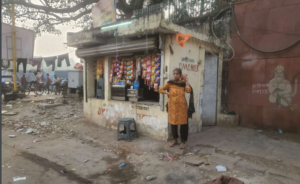By Subhash Chandra Agrawal

Shocking incident of adulterated ghee having been used in prasad of laddoos in Tirumala Tirupati Devasthanam during earlier regime raised big concern about purity of desi ghee and other milk-products sold for consumption by masses. There are reports of even synthetic milk sold in market.
Allow sale of only branded milk at least in metro cities
With government-owned Mother Dairy and co-operative giant Amul apart from some other private companies now dominating National Capital Region of Delhi in supply of milk and milk-products, sale of only branded milk may be permitted in the capital city. There are other reputed co-operative giants like Vita, Verka, Sudha, Saras and Nandini dominating sale of branded milk and milk products in respective states. Therefore, sale of only branded milk may be permitted in cities with availability of plenty branded milk.
Discourage production khoya-based sweets and encourage home-made paneer
Consumption of khoya during festive-season of Diwali in Delhi much exceeds all probable capacity through practical availability of milk to produce so much khoya. Demand of khoya in festive season evidently can only be fulfilled through adulterated khoya available in open market. Apart from launching a massive educative campaign through electronic and print media against use and exchange of sweets during festive season (sweets are otherwise harmful in consumption with ever-increasing diabetic patients in the country), every effort should be made to increase production of branded khoya by reputed manufactures in public, private and co-operative sector. Regular checks with sweet-dealers for checking adulterated khoya can discourage confectioners for not making khoya-based sweets. It is indeed ridiculous that GST-rate on sweets considered harmful for health, is just 5-percent while on other food-items, it is 12 or 18 percent! Sale of unbranded paneer should also be discouraged through massive educative campaign launched by central and state governments to use home-made paneer from branded milk.
Mother dairy and Amul having appreciable market-share in Delhi should also arrange door-delivery of khoya for bulk-purchasers on advance-booking. Mother Dairy markets khoya. But because of extra-ordinary fat-content, its product is not only costlier but is much hard to use. Mother Dairy should decrease fat-content in khoya to make it softer with its price comparable with that of khoya sold in open market by unorganised sector. Fat-content of khoya can be used for production of ghee and butter to increase profitability.
Packaging of milk and milk-products should be in true metric spirit
Namaste India branded milk marketed in Delhi by NIF limited has adopted anti-consumer practice through gimmick packing of its milk in packs of 950 mltrs and 1900 mltrs printed in tiny little alphabets to look alike packs of one and two ltrs respectively to befool customerss. Other milk products marketed by other milk-companies including like Mother Dairy and Amul are at times in odd packings like 400 mltrs or gms, 250 mltrs or gms, 450 mltrs or gms etc
Milk and all milk-products including also Ghee must be compulsorily packed in true metric-spirit compulsorily in either packs of 1, 2, 5, 10, 20, 50, 100, 200, 500, 1000 and likewise gms, mltrs, ltrs and kgms only as the case may be. Bigger milk packs presently packed in packs of six ltrs then can be packed in packs of five ltrs. Rule should cover Ghee also which should be packed in big packs of 10 or 20 kgs or ltrs rather than of 15 kgs or ltrs as at present. Moreover, products like Ghee should be uniformly packed in packs of ltrs only and not in kgs to avoid confusion. Consumers are confused in comparing prices of different brands where some marketers pack in ltrs while others pack in kgs.
Co-operative giant Amul ranking 15th in top 100 most valuable food brands in the world – needs to be encouraged further in larger public-interest of India
It is a matter of pride for cooperative sector in India when Amul ranked 15th in top 100 most valuable food-brands in the world according to the Brand Finance Food and Drink 2021 report with private-sector Britannia being the only other Indian company to find 54th place. Both these companies should be encouraged and entrusted in larger public-interested. For example, long-awaited implementation of tender-results of handing over loss-generating Delhi Milk Scheme to Amul requiring to be done urgently.
With too many complaints coming in mid-day meal programme in schools and railway-catering, Amul (and Britannia too) can be entrusted to supply packaged food-items for mid-day meal programme and railway catering. Central and state governments are already providing huge comforts to certain newly emerging companies by allotting land and tax-concessions. These should be provided at least to cooperative giant Amul if not to private sector Britannia. Such encouragement will not only be in public interest, but will also induce healthy competition amongst other Indian companies to find place in top 100 most valuable food-brands in the world. Top management of public-sector companies like Mother Dairy and Indian Railway Catering and Tourism Corporation (IRCTC) should be pulled up for being so behind Amul and Britannia despite heavy public-money invested in these public-sector companies.
Panchamrit by Amul : Should be entrusted to prepare Prasad for famous Hindu temples
Co-operative milk-giant Amul has ntroduced Panchamrit, a holy mix of milk, curd, honey, powdered sugar and ghee which is used to offer to deities in Hindu temples to be later consumed as prasad by devotees. Considering use of adulterated ghee at in prasad of laddoos in Tirumala Tirupati Devasthanam during earlier regime, calls for entrusting reputed co-operative giants like Amul and public-sector companies to prepare prasads in famous Hindu temples of the country.
Loss-making Delhi Milk Scheme (DMS) should be immediately transferred to Amul as per tender-results for best utilisation of DMS resources including its milk-booths
Co-operative giant Amul had won over Mother Dairy to take over Delhi Milk Scheme DMS running in heavy losses at an annual lease of rupees 42.30 crore against rupees 42.20 offered by Mother Dairy for 30 years with 7-percent annual increase in lease-amount in the bid opened on 27.11.2018. DMS started in the year 1959 having already piled up losses to tune of rupees 900 crores was decided to be given by central government to some market-leader.
Presently 564 DMS booths scattered on prime public-land throughout the capital city of India are being grossly misused as private shops (photo of a DMS milk-booth attached) by the licensees in corrupt partnership of DMS-personnel by authorisation to sell products other than from DMS. It is to be noted that Mother Dairy booths in Delhi-NCR sell only Mother Dairy products, a big reason for success of Mother Dairy.

However, in case Central Government does not accept Amul-bid, then it should merge DMS together with all its 564 booths with government-owned Mother Dairy. DMS, a “White Elephant” on public-exchequer with regular reduction in its utilization capacity from 43.20 percent in the year 2019-20 to 21.60 percent in the year 2023-24. Mother Dairy should also be declared public authority under RTI also because it is part of National Dairy Development Board (NDDB) which is already a public authority under RTI Act. .
Writer is Guinness World Record Holder for writing most letters and RTI Consultant




